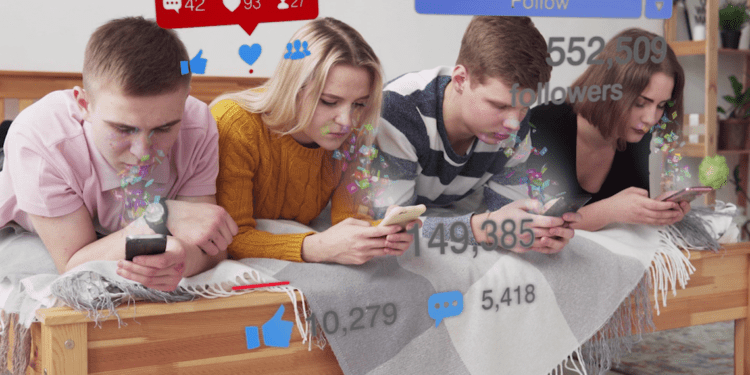[ad_1]
HOUSTON — With greater than four billion customers, the web has a bigger fashionable footprint than each the Christian and Muslim religions mixed. It holds lots of affect that begs the query: Are we dealing with that energy with care?
The web world has crept into virtually each facet of our lives: work, play even relaxation. It’s inflicting well being officers to concentrate to a what may very well be a brand new sort of downside; on-line addictions.
“It’s a actual dependancy as a result of in lots of circumstances it modifications the way in which the mind processes data,” stated Invoice Prasad, KHOU 11 psychological well being and wellness skilled. “They’re programmed to entice you additional. That social media urge for food is being fed many times.”
Prasad stated the moment gratification of seeing a like on an image or a touch upon a put up releases dopamine into our brains which provides us pleasure, very like a gambler feels after they win.
“It’s that dopamine hit. The frenzy. The fun,” Prasad stated.
Final yr, the World Well being Group labeled “gaming dysfunction” as a illness. The American Psychological Affiliation believes on-line dependancy is an actual factor however says extra analysis is required.
“A number of the standards for dependancy to alcohol and different medication is identical at instances as in comparison with web dependancy,” Prasad stated. “How a lot time are you spending on the Web? Is it to the detriment of your potential to be a superb father or a superb mom or a superb employee?”
Prasad factors to analysis in youngsters that exhibits an excessive amount of time on-line may cause despair and anxiousness. He advises individuals ought to set pointers, particularly for his or her kids, as to how lengthy they are often on the web per day.
He additionally suggests go browsing with a goal. Don’t simply scroll for scrolling’s sake. If you would like a sports activities rating, head proper to that web site after which log off. Don’t idle on the web.
Tristan Harris, founding father of Heart for Humane Expertise and Silicon Valley insider, classifies the way in which on-line data is obtainable and consumed as “human downgrading.”
“We’re getting free social isolation, free downgrading of consideration spans,” Harris stated throughout one in every of his lectures, stating the practically 1 billion hours of YouTube consumed every day might be hurtful. Criticizing the automated video play function.
“A couple of yr in the past, when you had been a teen woman and also you began on a weight-reduction plan video, it could suggest anorexia movies. And if you’re watching a NASA Moon touchdown, it could suggest flat earth. As a result of these are the issues that had been higher at preserving individuals’s consideration,” Harris stated. “So that you act out of worry…you act out of hysteria…you act out of dopamine.”
Harris lumps vainness, “outrage-ification” and tech dependancy all as human downgrading.
“In the event you take a look at the scope of human downgrading, the scope of the way it impacts our consideration spans our polarization our civility our belief our decency, we are able to’t simply resolve this with a bunch of Band-Aids,” he stated.
His non-profit works with policymakers, mother and father and net designers to alter our relationship with the net world, a world he believes may very well be a detriment to its creators.
Prasad factors out on-line addictions current a brand new problem, as a result of it’s practically inconceivable to unplug fully. Not like an alcoholic, who is inspired to cease consuming, usually work and colleges require some sort of on-line interplay.
There are therapists and psychological well being counselors who concentrate on on-line dependancy. A health care provider ought to be capable of level anybody looking for assist in the appropriate course.
ALSO POPULAR ON KHOU.COM
Ship us a information tip | Obtain our app | #HTownRush Publication
[ad_2]









